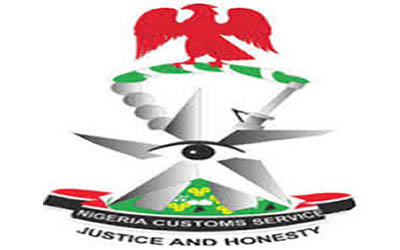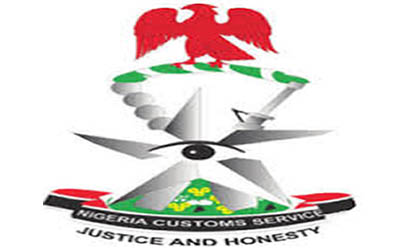With the geometric progression of daily generation and transmission of the Pre- Arrival Assessment Report (PAAR), the Nigeria Customs Service (NCS) seemed to have broken all the barriers which hitherto threatened the new customs’ clearing procedure at inception.
Available statistics show that from a daily generation and transmission of 250 PAAR at inception in December, the service, bracing all odds, is now doing between 1,700 to 1,800 generation and transmission of PAAR per day.
“We started this PAAR with 250 transmissions per day in December, but CGC (Comptroller General of Customs) said that was too small and ordered that we should increase it to two shifts, morning and evening. With two shifts, we transmitted 500 per day. He was still not satisfied with this, despite the backlog of 99,000 Form ‘M’ left behind by the service providers.
“He said we should increase this to three shifts to be able to meet up with the challenge. With three shifts, we transmitted 850 PAAR a day.
“The CGC was still not satisfied and he asked that officers with wide knowledge of classification and valuation be gathered across the customs formations in the country. They are made to work together with crop of young and talented officers who are computer wizards, and with this, we now produce between 1700 to 1800 PAAR per day”, Ibrahim Yusuf, the ASYCUDA Project Manager, Apapa Port Command, declared.
This performance has therefore destroyed the myth and falsehood being peddled against the new initiative by those the Area Comptroller of Apapa Customs, Charles Edike, described as “rented crowd” whose sponsors are frazzled by the transparent nature of the new clearing procedure.
To underscore the fact that the programme has overcome its initial hiccups that are normal with such innovative idea, the Apapa Command, which is the heart of the service and the fulcrum of the implementation of PAAR, has continued to record a progressive performance in generation and transmission of the clearing document.
According to the PAAR analysis made available by its ASYCUDA unit, the Apapa command has generated and transmitted a total numbers of 19,198 PAAR since December, 2013 till March, 2014.
Out of these numbers, 12,566 were unutilized while 6632 were utilised.
The breakdown of the figures shows that the command transmitted 781 PAAR in December, out of which 372 were utilized and 409 unutilised.
In February, the command recorded 5365 PAAR out of which 1792 were utilised and 3573 were unutilized. 9722 PAAR were generated and transmitted in March, but 3338 of them were utilised while 6384 were unutilized.
“If this performance could be achieved at the infancy of the programme by Customs coupled with over 99,000 inherited Risk Assessment Report(RAR) left by the ousted three Service providers which threatened to muddle up the process, why would anybody want to say PAAR is not working?”, Chief Olu Ologbese, a frontline freight forwarder, queried in bewilderment.
Comptroller Dike however disclosed that the opposition against PAAR regime by a section of stakeholders is a ‘’smear campaign’’ to discredit the process.
‘’We are aware that there is a lot of smear campaign to discredit the PAAR initiative. Not everybody likes good things, some people thrives on confusion’’, he admitted.
‘’If Customs is not ready, how would this quantum of PAAR be generated? How many Form’ M’ are processed in a day? How many declarations are processed in a day? People are being mischievous in their assessment of the process and their view is myopic’’, DC Yusuf added.
‘’ Even, the three service providers combined could not generate this much RAR in a month throughout the eight years they operated and to think PAAR regime is just four months old’’, Apeh Fateh, the Technical supervisor at Apapa Customs Command, interjected.
To underscore the success and wide acceptability of the new documentation and clearing procedure, the Ghana Customs Administration came to Nigeria recently to understudy the Nigeria Customs Service on the new process which they intend to copy.
However, investigation revealed that those who are opposed to the PAAR regime are either uncomfortable with its automation process which leaves no room for manipulation and compromise or they are ignorant about the concept of the new clearing system, despite the comprehensive sensitization and enlightment campaign of the customs’ authority.
Comptroller Edike lends credence to the ignorant attitude of some importers and their agents on PAAR.
‘’Most importers wait until their cargo arrive before they start to process their Form ‘’M’’ and they begin to lay blame of delay on PAAR. It is supposed to be pre-arrival but people are doing post-arrival. For RAR, it is fine, but for PAAR, that is not the concept’’, the customs chief observed.
He also noted that an importer is not supposed to commence importation until his Form ‘’M’’ is approved.
‘’It is after the bank has forwarded the Form ‘’M’’ to the Customs’ portal that you place order. But some people wanted to circumvent the process and when they run into a hitch, they start to blame PAAR’’, he declared.
‘’The purpose of this new clearing procedure is to engender change in our attitude. It is to infuse efficiency into out clearing procedure, to change from being analogue to electronic for speed, efficiency and cost-effectiveness.
‘’People are used to doing things in the old ways which they could easily circumvent and compromise for their selfish interests.
‘’In the old order, the importer will seat at his house, call the agent to come and collect bill of lading. The agent, who does not know how long the importer holds the document, will go to the bank and open Form ‘M’ in his own company name.
‘’When the customs gets the document and found discrepancies in consignee’s names in the bill of lading and form ‘M’, how do you get PAAR?’’, DC Yusuf observed in apparent reference to importers’ claim of delay in getting their PAAR.
Fateh corroborated the views of his superior officers when he said that some importers find it more convenient to wait for their goods to arrive before they commence the process of PAAR.
‘’It takes a minimum of three weeks for cargo to come to Nigeria either from Europe or Asia. For a diligent and truthful importer, this is more than enough time to complete this process of PAAR’’, DC Yusuf observed.
However, most stakeholders expressed their faith in the new clearing regime, pointing out that it was too early to condemn the process.
John Ofobike, the Chairman, Technical Committee on PAAR, Association of Nigerian Licensed Customs Agents (ANLCA) described the process as ‘a wonderful process which is proudly Nigerian’’
He noted that the hitches indentified with the programme are normal with such new endeavour but noted that the customs authority, which his committee liaises with, is on top of the situation to smoothen the rough edges.
Ofobike, who was the immediate past chairman of Apapa chapter of ANLCA, traced the evolution of different clearing systems practiced in Nigeria such as IDR , PIDA, CIR and RAR which he observed were all jettisoned because of their inherent deficiencies.
He enjoined stakeholders to support the customs to overcome the initial problem of PAAR.
“People are in a hurry. PAAR started few months ago. Such a new endeavour is prone to initial hiccups. The only perfect documents in the whole world are Holy Bible and Quran. I tell you, PAAR will overcome its teething problems in few weeks and thereafter, be strengthened’’, the ANLCA chieftain declared.
Julie Ogboru of Lagos Chamber of Commerce lauded the initiative of the Customs’ management over PAAR. She observed that it is a home-grown effort which all the stakeholders must support.
She however identified minor hitch which she wanted the customs’ authority to rectify.
According to her, the officers manning the Help Desk at the Customs’ headquarters are doing a great disservice to the programme through what she described as their indolent attitude to work.
‘They do not pick calls from importers or agents who have complaints or clarifications to make. They should be made to sit up to enhance the performance of the process” she advised.
‘Apart from this grey area, I think PAAR is working’, she declared.
Olojo, a Maritime Reporter, writes from Lagos.
Copyright Ships & Ports Ltd. Permission to use quotations from this article is granted subject to appropriate credit given to www.shipsandports.com.ng as the source.


